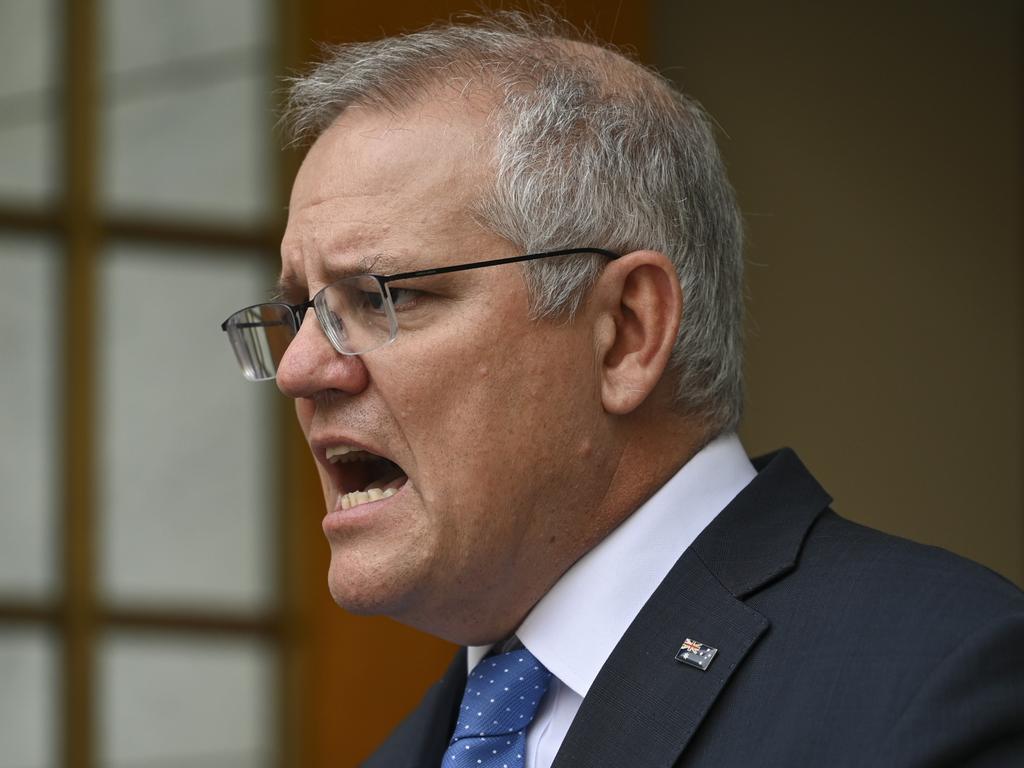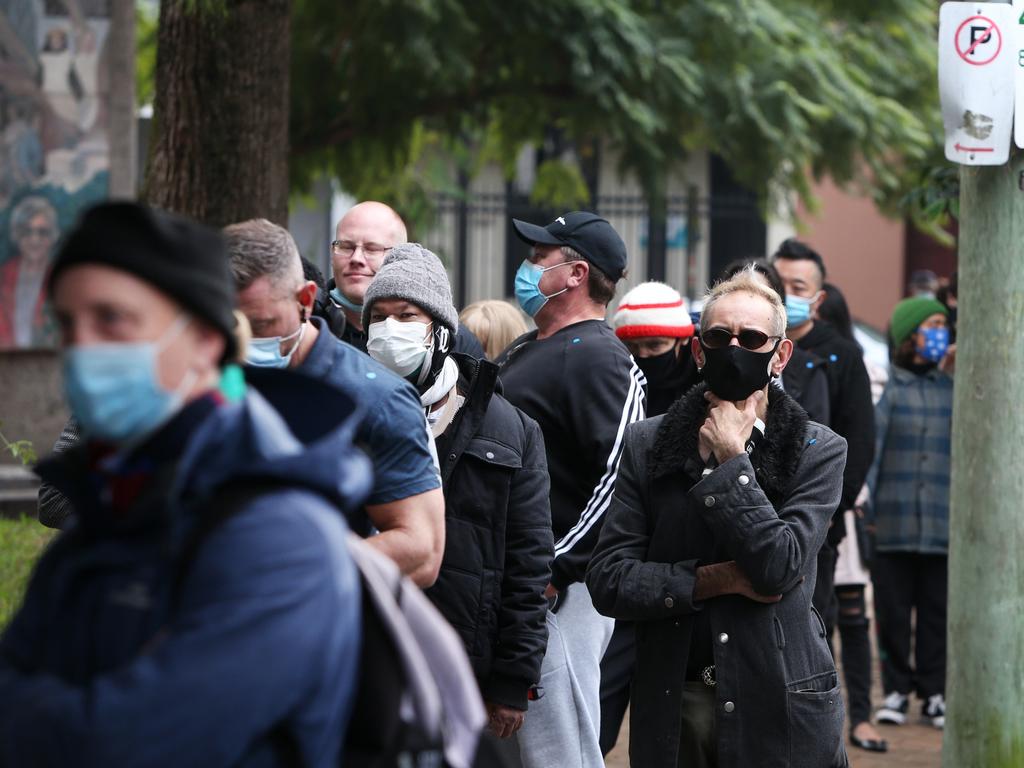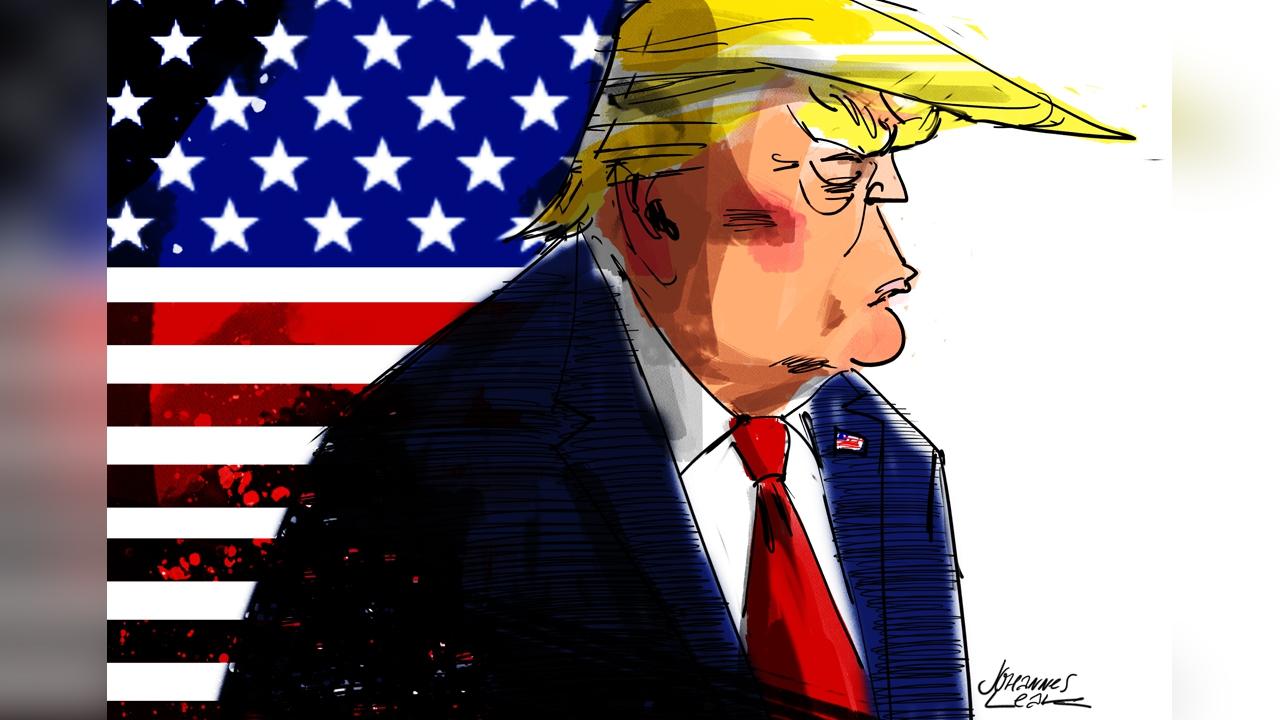Coronavirus: Politics is infecting the road to normal
This was a messy week, but the road map is a big step forward. Nonetheless, political peace with the states is always temporary.
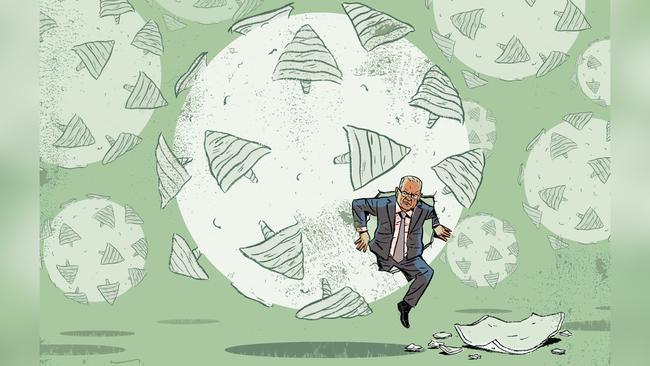
Scott Morrison has made a heroic effort to wrest back control of the Covid virus, and the way we manage it, and to offer the nation a way forward.
The nation wants this. There is an agony of lockdown and virus uncertainty. Worldwide, everyone asks the same question: When will this end?
Morrison’s answer: it ends, or this stage ends, after we are vaccinated. Get vaccinated and life can return to something like normal. This is a constructive approach, but still full of uncertainty.
On the other side of vaccination, we can think of the virus in terms of serious illness and fatalities, not raw case numbers. But that day is still quite a long way off.
Everyone wants a road map out of the virus. But as they say in the military, battle plans seldom survive contact with the enemy.
Any road map is limited by the way the virus might change. The Wuhan virus was seldom transmitted through aerosols. The Alpha variant was more transmissible. The Delta variant is massively more transmissible again and seems to attack kids more frequently.
The chief health officer, Professor Paul Kelly, said that while more transmissible it wasn’t more severe, then he said there was no good evidence that it was more severe. They are quite different statements. In Covid, the anecdotal has often foretold the analytical.
Morrison offers four phases. The stage we are in now is vaccinate, prepare and pilot. In this phase, “we continue to suppress the virus”.
The overwhelming emphasis is getting vaccinated. This week we had a record day of jabs, more than 160,000. The first million jabs took 45 days, the last million eight days.
Our vaccination has been slow but not as slow as critics suggest. Some 8 per cent of eligible Australians have now had their double dose, while 30 per cent have had a first jab. The first jab itself offers some protection.
A large portion of our effort is still non-pharmacological. Health Minister Greg Hunt tells Inquirer: “The strongest defence is to keep it (Covid) out. The next defence is vaccination.”
To keep it out, Morrison will halve commercial flight arrivals. There have been consistent breaches of the hotel quarantine system, so cutting the load should cut outbreaks.
The Morrison government will increase its own sponsored flights back to Australia for stranded Australians. Those people will go to dedicated facilities in the Northern Territory.
The government will look to trial home quarantine for people who come in who are fully vaccinated and also test negative. Giving greater freedoms to the fully vaccinated is crucial, and good policy, at every stage.
Entering phase two will be based on achieving a certain level of vaccination, including targets for the most vulnerable. Policy switches then from trying to suppress the virus altogether to limiting fatalities and serious illness. Here Australia is “living with the virus”.
Victorian Premier Dan Andrews argues that after all Australians have been offered the vaccination, that may be the time to open up: “We certainly won’t be doing lockdowns to protect people who refuse to protect themselves.”
Morrison thinks we might get there by the end of the year. So not much changes for the next six months. Lockdowns will be a last resort, the PM says. But in the end, that’s not up to him. States will lock down if they fear the virus will get away from them.
The radically increased infectiousness of the Delta variant is the factor that saw 11 million Australians under lockdown or severe restrictions this week.
Phase three is consolidation. Australia will manage Covid as it manages other serious infectious diseases such as influenza. “When it’s like the flu, we’ll treat it like the flu,” Morrison said.
Phase four is Covid normal and will feature uncapped travel in and out for the vaccinated. All this is sensible, good policy. However, it’s not rocket science to work out the stress points and difficulties.
For a start, the vaccination rate for phase two is probably north of 60 per cent. Even Britain, a near world champion in vaccination, is only just above 60 per cent. The US is below 50 per cent fully vaccinated. Those nations have been ravaged by hundreds of thousands of Covid deaths, which would, you might think, create a strong incentive to get the jab. Even when vaccine supplies ramp up in Australia, it could be mighty hard to get beyond 60 per cent.
The vaccination rate will be determined by modelling. Yet modelling has been wildly unreliable all over the world at every stage of the illness. Who can now remember the perfectly dotty claims that herd immunity could be reached with a 20 per cent infection rate?
The government is also the victim of Australia’s success in keeping the death rate low. Hunt tells me: “No one’s immune. We are not immune. The government’s just kept it out better (than other nations) so that’s created higher expectations in Australia.”
This success has created two totally opposite pressures. On one side, the business community and a lot of Australians say why should we suffer so much lockdown dislocation when the burden of illness has been so slight? This reasonable line of argument is wildly exaggerated by some on the right who, through some magic mind-altering auto-hypnosis, have convinced themselves that the virus is not much more than the flu.
They seem not to have noticed modern high-quality health systems, from northern Italy to New York, being completely overwhelmed. They seem to ignore the thousands of doctors and health professionals who have died from Covid, and the countries now enduring a new phase and finding their hospitals and health systems in deep stress.
They also ignore the shocking burden of long Covid, now afflicting two million Brits and millions of Americans. These folks condemn any restrictions. They don’t move policy, because their suggestions are irrational, but they do increase the noise level and the general uncertainty. On the other side, many Australians are extremely fearful of the virus and intolerant of any infections. The federal government has financed lockdowns imposed by the states. Lockdowns, though sometimes necessary, have hurt people.
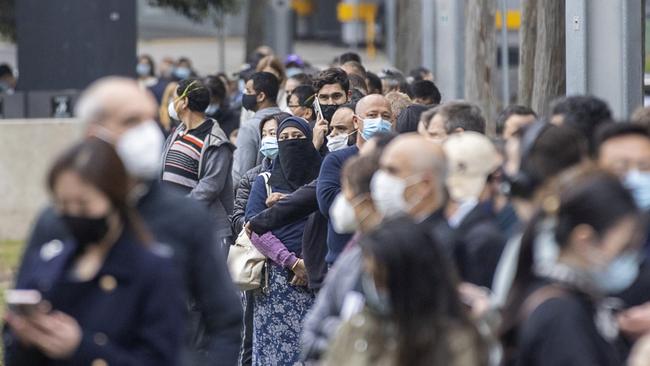
But it’s also true that hundreds of thousands of people with secure jobs have endured relatively mild inconvenience and think this is reasonable to keep the virus out.
The premiers channel this when they urge the federal government to shut our borders even more tightly.
Morrison’s government is also limited because while it pays the bills, it’s the states that make the decisions. They have become adept at blaming Canberra for their own mistakes.
This week saw one of the most blatant and disgraceful episodes of politicising the virus by the Queensland Premier Annastacia Palaszczuk, notably, if perhaps unintentionally, assisted by her chief health officer, Jeannette Young.
The Queensland government is the gold standard in finding distractions from its own mistakes by bashing the federal government. This week was the worst so far. It threatened to shatter any national approach. Young’s comments were so intemperate that we saw not just the regular bickering of politicians, but the more disturbing sight of doctors and health leaders contradicting each other.
This is not a grey-zone question. The blame rests entirely with the Queensland government. In Queensland, a receptionist for a Covid hospital ward was not vaccinated and she became the source of an outbreak. In another incident, a mine worker, transiting through Queensland, was quarantined for a day at a hotel used for international arrivals. He caught the virus in that hotel.
About the same time, Morrison answered a question correctly to the effect that people under the age of 40 could seek the AstraZeneca vaccine if they had a consultation with their GP and had been fully informed of the risks.
Morrison’s words gave expression to the Australian Technical Advisory Group on Immunisation’s official advice.
ATAGI advised that the Pfizer vaccine was preferable for under-60s and AstraZeneca for over-60s. It was a very fine balance of competing risks. In Britain, AstraZeneca is recommended for everyone over 40.
The official ATAGI advice read in part: “AstraZeneca can be used in adults under 60 … for whom Pfizer is not available, the benefits are likely to outweigh the risks for that individual and the person has made an informed decision based on an understanding of the risks and benefits.”
Palaszczuk attacked Morrison as though he had advised people to inject themselves with disinfectant, but Young’s comments struck me as bizarre.
Young people could die from rare complications, she said, if they got an AstraZeneca jab, whereas if they got Covid they probably wouldn’t die.
It was Young, not Morrison, who seemed in plain conflict with the ATAGI advice. Her comments were the most ill-advised and damaging of any from a senior health official in the time of Covid. She was widely and rightly criticised by a number of epidemiologists, doctors and medical professionals.
What is the logic of her comments? We have had several million AstraZeneca injections and two deaths. That puts the risk of death at less than one in a million. There are dozens or hundreds of routine medical procedures with a greater risk than that.
Every time you have an X-ray you slightly increase your risk of cancer. So, using Young’s logic, you could melodramatically proclaim that people have died because of needless X-rays. The same is true of countless elective surgeries. Medical professionals almost always advise that in considering any optional medical event people consult their own doctors, which is what ATAGI advised, and what Morrison advised.
Will people who just turned 60 now be scared away from getting AstraZeneca by Young’s emotional comments?
Young is a distinguished and estimable person with a long record of public service. But her foolishness in this is important. It demonstrates the acute danger of the politicisation of health officers.
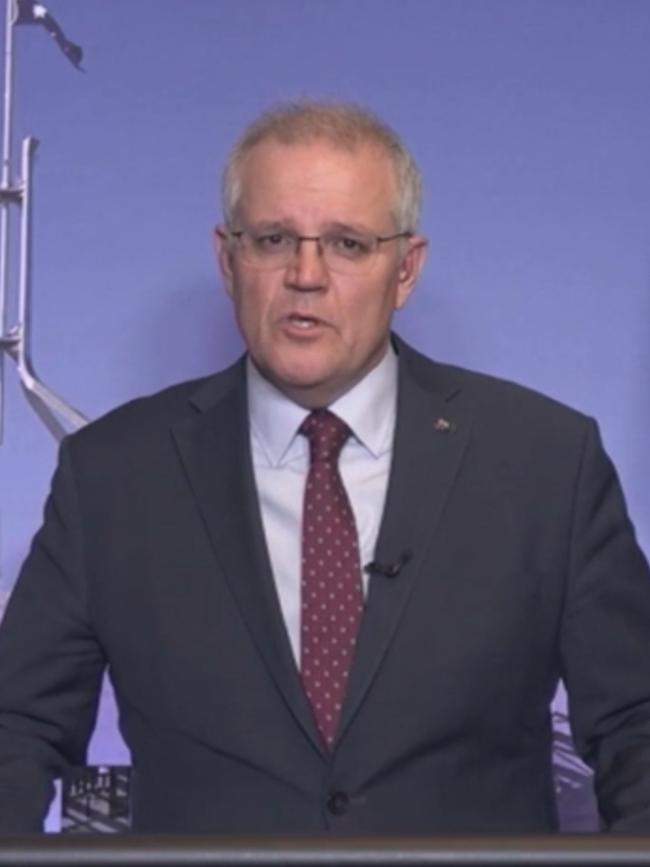
It looked like a pile-on against the PM. Whatever the head of whichever government standing next to them is saying, health officers have an absolute responsibility to avoid politics.
The episode demonstrates that premiers will easily default to destructive politics if circumstances make this useful. Never stand between a premier and the chance to blame Canberra for their problems. National cabinet has its limitations but it has substantially prevented this dynamic running to more destructive extremes.
The Morrison government has certainly had its Covid shortcomings. It is grotesque that we still have only one dedicated, purpose-built quarantine facility. Why do these projects move so slowly? We will likely need them in one form or another for years. Such facilities might have saved us from some lockdowns.
The government has genuine excuses for the initially slow vaccine rollout. The Queensland Uni vaccine fell over. Some 3.4 million doses of AstraZeneca that were fully ordered did not turn up from Europe. Companies prioritised their own nations, or nations with heavy Covid death tolls. Then AstraZeneca developed its blood clot problems and ATAGI took one of the most conservative risk management approaches in the world.
But electorates never pay out on excuses. It is critical now that the vaccine acceleration goes well over the next few months.
For all that, Australians should try to keep a sense of perspective. They could do worse than look at international comparisons. Barnaby Joyce got it right in his characteristically pungent fashion: “The real measure of success is whether you’re dead or alive.”
Numerous countries that did well, like Australia, are now suffering a new wave of Delta infections. Even with its high vaccination rate, Britain delayed ending lockdown for four weeks because a wave of Delta infections among the unvaccinated led to a big rise in hospitalisations and deaths.
Indonesia, Malaysia, Bangladesh, India and many other nations that we don’t pay enough attention to are deep in Covid crisis.
It’s very unlikely that life, even post-vaccination, will ever return to exactly what it was before Covid. Travel will be less frequent and depend on vaccination certificates and, given the temporary nature of immunity, probably booster shot certificates too.
And we have no idea what the virus itself will do. Finland is trialling vaccinating children because new variants seem to attack younger people more. And finally, we do not know how much Covid death Australians will put up with.
We have spent a vast portion of wealth to prevent deaths over the past 18 months and most Australians appear to be OK with that, given how enthusiastically they have been returning governments at elections. But the cost/benefit equation is changing.
This was a messy week, but Morrison’s road map for the immediate future is a big step forward. Nonetheless, political peace with the states is always temporary. The virus itself may still have many tricks. Nothing is guaranteed.
For now, one simple imperative rules them all: Vaccinate! Vaccinate! Vaccinate!



